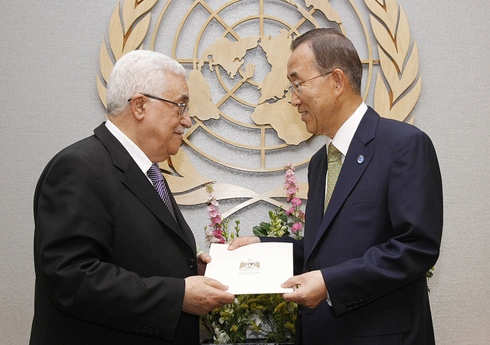
It came as no big surprise that the United Nations General Assembly voted to upgrade Palestine to non-member observer status. But, reflecting the reality that international criminal justice now goes to the very heart of Middle East politics, many are left wondering whether Palestine will join the International Criminal Court and request (once again) that the ICC investigate its conflict with Israel. Pondering this issue has left me deeply frustrated.
While it may not be wise to box oneself into a particular moral outlook, I consider myself to be a liberal cosmopolitan. Very briefly, that means that I believe in a politics where all human beings share fundamental individual rights and that when those rights are blatantly violated we, as a global community, have some obligations to respond. This political ethos, I believe, is also what guides most proponents of the ICC, not to mention other liberal cosmopolitan projects such as the Responsibility to Protect.
It is through this liberal cosmopolitan conviction that I view the ICC as inherently political but embodying the potential for fundamentally good politics. I criticize the decision-making of the ICC as well other actors in international relations, such as the UN Security Council, when they move the Court away from its liberal cosmopolitan premise and promise. Of course, this does not mean that I believe that the ICC should be deployed as a blunt instrument, forced down the throats of populations who legitimately seek alternative paths towards accountability and justice. That is far too hegemonic for my taste. But it seems to me, in the case of Palestine at least, that the citizens themselves want to see justice done and see the ICC as an institution through which they can achieve at least some degree of it.
Yet there is a rather convincing political argument to be made that the ICC should not investigate Palestine. In a recent post Kevin Jon Heller deftly covers this argument. Heller writes (in the comments):
I have no doubt that both Israel and the Palestinians have committed serious international crimes. But I also believe it would be suicidal for the ICC to wade into the most politicized conflict in history — virtually guaranteeing that the US would revert to its previous hostility and that all of the Court’s other work would be ignored by the media and the international community. The Court’s long-term legitimacy is more important than any individual investigation, no matter how deserving of investigation a situation might be.
In my view, Heller is absolutely correct in noting that an ICC investigation of Palestine would seriously complicate the Court’s standing in international politics, likely undermine its legitimacy, and consequently hamper its ability investigate other situations in the future. And this exposes a serious and rather frustrating dilemma: it may be necessary to protect the institution that furthers liberal cosmopolitan aims (ie. international criminal justice) by undercutting its ability to achieve those liberal cosmopolitan aims in some cases.
Risking poor taste in quoting a previous blog post of mine, I re-read a piece I wrote on the potential of the ICC investigating Palestine in October 2011. I stand by these comments even more firmly today:
Justice in Palestine has less to do with justice than it has to do with politics. Recent events and reactions regarding Palestine’s application to the UN for recognition make it clear that we are nowhere near delivering justice on the basis of our responsibility to some abstract global citizenship. If we take our liberal cosmopolitan obligations and responsibilities seriously, then we should look at ourselves in the mirror and realize that some of humanity’s citizens have more rights than others. Some citizens are not just worse off but simply treated as being worse, as being less.
The case of Palestine perhaps exposes the hidden power inequalities within global liberalism and liberal cosmopolitanism. Those people in the most sensitive geopolitical regions would receive the benefits of a liberal cosmopolitan world last and not because they wanted it, but because, in some way they were “granted” it. Neither Palestinians, nor, frankly anyone in the world should be granted the ability to achieve justice. They should already have it.
And therein lies my frustration – in the apparent reality that in some cases it is necessary not only that power politics wins over liberal cosmopolitanism but that the victory of power politics may actually propel the aims of liberal cosmopolitanism. Indeed, in such cases, it may be that international criminal justice has to be saved from itself. For the time being, that means that those states who will do everything they can to prevent Palestinians and Israelis from seeing justice are likely to succeed. For many, this is nothing new; this is the ‘selectivity’ and the ‘real’ politics of international criminal justice. Still, that doesn’t make it any less frustrating. And it leaves a bad taste in my mouth.
Mark Kersten is creator and author of the blog Justice in Conflict. He is currently a PhD student in the International Relations Department at the London School of Economics, researching on the implications and effects of the International Criminal Court’s investigations on peace processes and negotiations in Libya, Darfur and northern Uganda.
This is a cross-post from Justice in Conflict
For further information on the topic, please view the following publications from our partners:
The Palestinians: Background and US Relations
Jerusalem, Netanyahu and the Two-State Solution
Light at the End of their Tunnels? Hamas & the Arab Uprisings
For more information on issues and events that shape our world please visit the ISN’s Security Watch and Editorial Plan.

